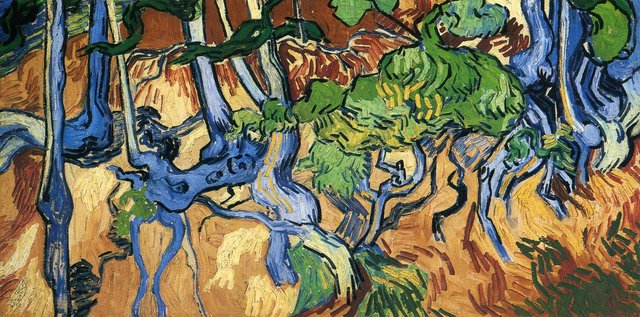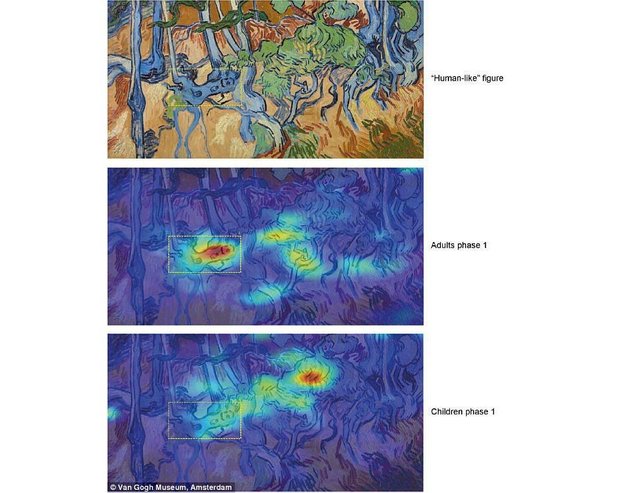The children did not see the nude figure in Van Gogh's painting
The study showed that children and adults use different strategies for perceiving visual information.

It is known that adults and children perceive information in different ways. Peculiarities of children's perception are not always taken into account, and this leads to problems in the sphere of education. The attention of the students can dissipate much earlier than the lesson ends. Textbooks and training programs created without these features are not carried away and seem boring. Therefore, the study of age-related features of perception has become a separate area of research.
The authors of the new work, published in the journal PLoS ONE, investigated how children and adults perceive visual information. The experiment was held at the Van Gogh Museum in Amsterdam. Participants in the study were 12 children aged 11-12 years and 12 adults 20-29 years. None of them had previously been in the Van Gogh Museum and had not studied at an art school.
The material for the study was five paintings of the artist, exhibited in one room of the museum. All paintings belong to the last stage of the creation of Van Gogh - the artist wrote them in 1890, shortly before his death.
To find out how the participants perceive the pictures, scientists used trackers to look at the view. This tracker consists of two cameras. The infrared camera captures the movements of the eye and the pupil's reaction, and the camera with automatic focusing monitors where the eye is directed. In the first phase of the experiment, the participants examined the canvas for about 30 seconds without further instructions, before the second phase they were given a brief description of each picture. After each phase of the experiment, participants talked about what particularly interested them in each picture. According to the results of the study, the scientists made "thermal maps" of the perception of each picture by adults and children.
Scientists have explored how the visual perception of pictures combines an ascending and descending information processing strategy. It turned out that the children, when viewing the picture, focus on its bright and noticeable features. Thus, an ascending perception strategy emerges, in which individual perceived details are gradually combined into elaborate complex systems. After listening to the description, the children began to "highlight" less visible elements of the paintings.

Adults in both stages of the test prevailed descending strategy of perception. In this case, the brain uses not only notable visual stimuli, but also other sources of information - for example, the plot of the picture or the available knowledge about the artist's work. Interestingly, most adults (10 of 12) noticed an image of a naked human figure in the painting "Roots of the Trees," although the picture did not tell us about it. Of the children, only two saw her.
Researchers plan to conduct similar experiments with a large number of participants.
I'm 33 and I can't see no naked lady. This study is bullocks.
I dont think it looks like a naked person either.
If you did not say there was a naked women in the pic, I never would have seen it. If now I look hard and study it, its found. Interesting. Thanks for the discussion.